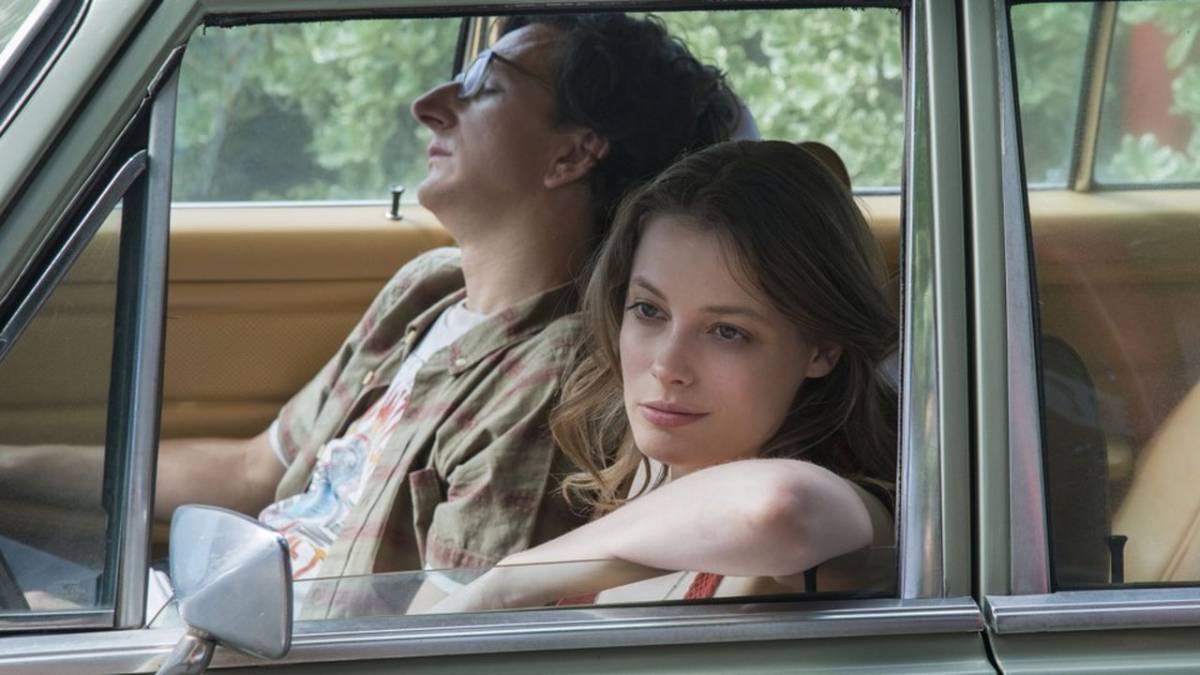Love is as amorphous and confusing a show to wrap your head around as the concept with which it shares its name.
On the one hand, it’s not difficult to see the wealth of comedic and acting talent present on screen at any given moment, it suitably manipulates your expectations of what to expect from a rom-com series and it’s prone to moments of tenderness and heart that brim with exactly the right combinations of originality and sincerity. For what the show is capable of producing, it should be all aces.
The simple fact of the matter, however, is that I couldn’t get a read on the show. By season’s end, I was completely lost as to what the show had been trying to say, what I was supposed to feel about its characters or what I was supposed to make of their prospective futures. For the purposes of avoiding spoilers, I’ll try to make my observations as general as possible but the implied objective of the show seems to pinball around the perimeters of ‘nice guy meets cool girl’, ‘neurotic guy meets troubled girl’ and ‘broken boy and broken girl try to fix each other’.
This doesn’t immediately disqualify Love from being a success but, in order to be so, it does necessitate a strong, consistent directing hand throughout the production and post-production process . It needs to ensure that for every fluctuation, every contradiction, every subversion of established expectations there is an identifiable reason for why you’re doing what you are doing and what your subsequent intentions are. It needs tight, efficient story-telling with an aversion to unjustified dialogue or red herring scenes. And this ultimately is where Love fails.
Much of the criticism levied at Love is about how long it takes to get off the ground but I don’t necessarily think this is the problem. The show spends its entire 40 minutes worth of pilot episode introducing us to Mickey and Gus as separate entities; exploring their personalities, their hangups, their contrasting romantic predicaments. The consequence of this, however, is that the payoff of their first encounter is all the more satisfying since it carries so much contextual weight. The audience has been thoroughly exposed to how frankly screwed up they both are and I was filled with as much trepidation as excitement during their meeting, which I am confident was the intended response.

The problem with the show is not its length, but rather its turgidity. Conversations often seem to go nowhere. Characters are introduced that seem to serve no function other than populating the set – (what was the point of introducing Alan and Frank only for them to do nothing at all from episode four onwards?) – and subplots are either shelved or just seem to be aborted (the relationship between Bertie and Mickey, in particular, defaults disappointingly in the final episodes).
How did this happen? Well, I’d wager that two elements of the show’s production engendered its rudderless pacing; Judd Apatow’s position in one of the director’s chairs and the fact Netflix doesn’t have a cap on its episode length.
Apatow’s directorship often gets serious mileage out of embracing improv and on-set re-writes. In a ‘Serious Jibber Jabber’ segment with Conan O’Brien back in 2012 , Apatow responded to O’Brien’s assertion that he was the ‘ defining example of how to do improv right’ by elaborating on the process on set where he often joins the actors in their improvised scenes, called out ‘curveball line changes’ and advised of particular instances where he has simply unleashed the actors – often comedians in their own right – upon one another and let the camera’s roll.
This gives gives Apatow’s work genuine comedic authenticity but it often feels like you’re sitting in on a bunch of comedians riffing on each other as opposed to witnessing a cohesive story telling experience. To illustrate, not one of the last four movies Apatow has directed has been less than two hours long. And they’ve all been comedies. Funny People’s theatrical release is just shy of two and a half hours and the one of the cornerstone criticisms of that film is just how unbearably long it is, despite it being some of the best work Adam Sandler has done in years.
With this in mind, its easy to see how Apatow’s tendencies combined with Netflix’s unrestricted running times actually handicap Love’s potential success. US comedy-dramas that air on a television network often occupy a 30 minute slot, leading to a show about 18 to 21 minutes in length. Were we to look at another Netflix exclusive comedy-drama – Aziz Ansari’s Master of None – the longest episode has a 33 minute running time with shortest being 26 minutes, giving a range of 7 minutes. By comparison, Love’s longest episode is 40 minutes with its shortest being 27. A 13 minute range in potential episode lengths. You can see the meandering plot, fluffed scenes and irrelevant inclusions reflected in the show’s numbers.
The show really isn’t bad. If you are a fan of Apatow’s style, with its irreverent dialogue and creative and often disparaging references to pop culture, then this wont be a problem – the cast is full of funny and talented people and the writing is solid. But as it happens, the show isn’t unlike a sugar binge; it’s enjoyable, comforting and it occasionally surprises, but it lacks the substance to make it truly satisfying and before too long you’ll forget that you even had it.
Some of the coverage you find on Cultured Vultures contains affiliate links, which provide us with small commissions based on purchases made from visiting our site. We cover gaming news, movie reviews, wrestling and much more.



